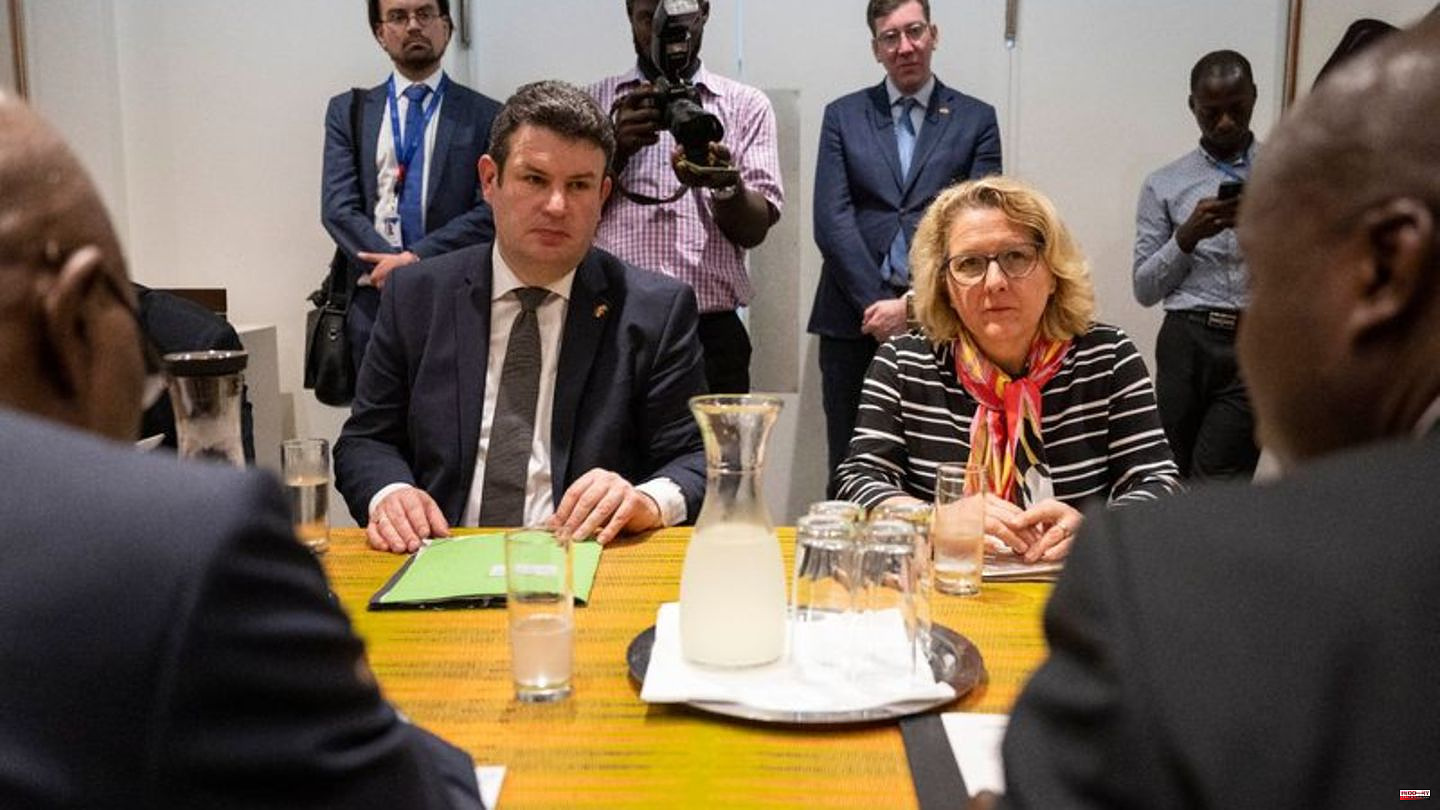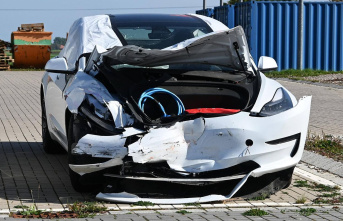Hubertus Heil is sweating. The Federal Labor Minister and his cabinet colleague Svenja Schulze flew almost 6,000 kilometers from Berlin to Ghana. In the muggy February air in the West African country, the labor and development ministers announce nothing less than a "paradigm shift in German migration policy." This is what the federal government calls its attempt to control immigration in such a way that everyone involved benefits.
Heil and Schulze want to be more successful on the sensitive issue than the grand coalition of the time was in the past. The then Health Minister Jens Spahn (CDU), for example, flew to Mexico in 2019 to make it easier for nurses to get to Germany. In the meantime, the shortage of skilled workers in Germany has reached threatening proportions in more and more sectors. The traffic light government wants to reduce the shortage at all costs - without the countries of origin suffering painful bloodletting.
Schulze hopes for a win-win-win situation
In Ghana's capital Accra, the two SPD politicians spoke longer with the Ghanaian Minister for Social Affairs and the Department Head for Industry on Monday evening. Humid air around 30 degrees Celsius is a problem for the visitors from Germany, who otherwise want to take action against human rights violations in global supply chains in West Africa.
But Heil and Schulze don't let the hot temperatures stop them. You also want to send hopeful messages about migration here. "The point is that both countries can benefit from this in their economies," says Heil. "That's why it's good to work together and create a win-win-win situation," says Schulze.
The "paradigm shift" that the government is talking about has been planned for a long time. As early as November, the traffic light called up four cabinet members to campaign for the new immigration law for skilled workers. At that time, key points were decided. Since Monday, the government has been collecting statements from the federal states and business and social associations on the planned law. But what should the fundamental change consist of? Should specialists now be attracted at any price?
Heil will faire Migration
In Accra, Heil and Schulze give the go-ahead for a realignment of an already existing Ghanaian-German migration advice center. The facility, located right next to Ghana's Ministry of Labor, is intended to provide interested parties with information: Which roads lead to Germany - but also to other EU countries? What do Ghanaians who want to emigrate have to do if they want to try other African countries first?
In addition, the center - as before - should help Ghanaians returning from Germany to gain a foothold at home again. Germany promises, among other things, support for setting up a business.
"If the impression is created here that we are taking clever specialists away from this country, then that would be wrong," says Heil. According to the German minister, Ghana, with its almost 34 million inhabitants, has a surplus of well-trained people who cannot find work at home. According to forecasts, Ghana's population will grow by almost 7 million more in the next ten years. "That's why it's important that we ensure that migration is fair in several ways."
Schulze says: "This is a very young country with a very young population." In fact, around 56 percent of people are under the age of 25. "We are an aging society," Schulze counters, "we need skilled workers."
"Avoid murderous ways through Sahara"
Many young Ghanaians would rather go to Europe today than tomorrow. The country is stable and also quite safe as a travel destination, unlike its northern neighbor Burkina Faso, which has been hit by terrorist developments. But the country is groaning under inflation of over 50 percent. The economy is ailing.
But Germany does not want to attract poverty migration. "It's also about avoiding murderous routes through the Sahara," says Heil, referring to illegal refugee movements. With the Skilled Workers Immigration Act, those willing to enter the country should be selected, for example, on the basis of professional experience or a connection to Germany.
In Ghana alone, the Development Ministry is investing around 10 million euros in qualification and vocational training over the next three years. Ghana's Social Affairs Minister Lariba Abudu also praises the "strong bilateral relations" with Germany. A total of 150 million flow from Schulze into such migration projects in countries in Africa, Asia, Latin America and Central and Eastern Europe. Further centers like in Ghana's capital Accra are planned in Morocco, Tunisia, Egypt, Jordan, Nigeria, Iraq, Pakistan and Indonesia.
example nurses
As a cautionary example of how things should not go, at the traffic light, the nurses’ area is cited. As early as 2020, the then grand coalition relaxed the rules on the immigration of skilled workers to some extent. One had hoped for thousands of new forces.
But last year you could count on one hand the nursing staff who came from India, Indonesia or Jordan, for example. In total, 656 foreign nurses were placed in Germany by the Federal Employment Agency in 2022. In 2022, most recruited professionals came from the Philippines with 255.









